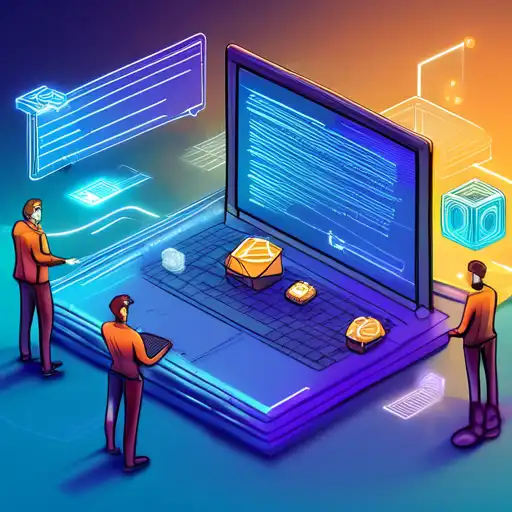Introduction to Smart Contracts
Smart contracts represent a pivotal innovation in blockchain technology, automating agreements without the need for intermediaries. These self-executing contracts with the terms of the agreement directly written into code have revolutionized how we think about trust and transactions in the digital age.
How Smart Contracts Work
At their core, smart contracts are programs stored on a blockchain that run when predetermined conditions are met. They are used to automate the execution of an agreement so that all participants can be immediately certain of the outcome, without any intermediary’s involvement or time loss.
Benefits of Smart Contracts
Smart contracts offer numerous advantages, including but not limited to:
- Autonomy and trust – Parties interact directly without relying on a third party.
- Backup – Your documents are encrypted on a shared ledger, making them virtually incorruptible.
- Safety – Cryptography, the art of writing and solving codes, keeps your documents safe.
- Speed – You’d ordinarily have to spend time and paperwork to manually process documents.
- Savings – Smart contracts save you money since they knock out the presence of an intermediary.
Challenges and Considerations
Despite their potential, smart contracts are not without challenges. Issues such as the immutability of blockchain, the complexity of coding, and legal recognition pose significant hurdles. However, ongoing advancements in blockchain technology continue to address these concerns, paving the way for wider adoption.
Real-World Applications
From finance to real estate, smart contracts are finding applications across various sectors. They are particularly transformative in areas like supply chain management, where they enhance transparency and efficiency, and in decentralized finance (DeFi), where they enable complex financial transactions without traditional banks.
Future of Smart Contracts
The future of smart contracts is intrinsically linked to the evolution of blockchain technology. As scalability and interoperability improve, we can expect smart contracts to become more mainstream, further disrupting traditional business models and creating new opportunities for innovation.
For those interested in diving deeper into blockchain technology, exploring our comprehensive guide on blockchain is a great next step.
Conclusion
Smart contracts are a cornerstone of blockchain technology, offering a secure, efficient, and transparent way to execute agreements. While challenges remain, the potential for smart contracts to transform industries is undeniable. As the technology matures, we can anticipate broader adoption and even more innovative applications.
